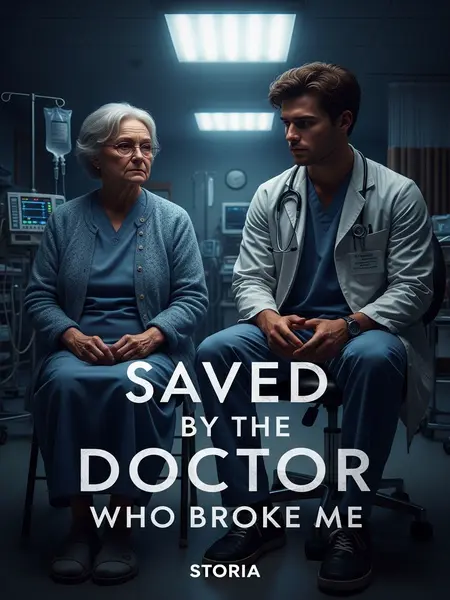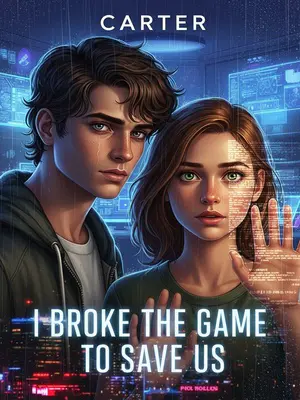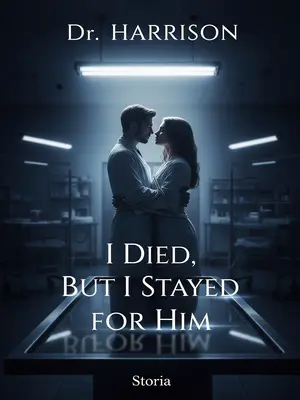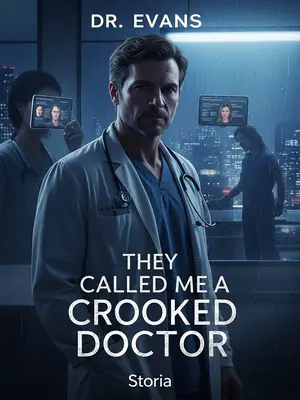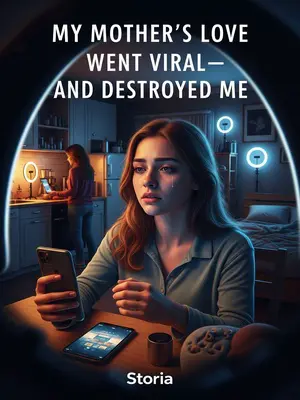Chapter 1: The Monster in the Wound
Some cases never let you go. This one still wakes me up at night, heart pounding, the smell of that hospital room clinging to my memory.
It was the kind of case that brands itself into your bones, the sort you can’t shake even years later. Sometimes, in the quiet after midnight, my pulse jumps just thinking about it.
An elderly woman had fallen off her bike while taking her granddaughter to school, scraping her shin in the process.
Picture this: a wiry little woman, silver hair tucked under a sun-bleached ball cap, pedaling her battered Schwinn down a cracked sidewalk. Her granddaughter’s pink backpack bounced with every bump, the smell of cut grass and distant bacon drifting through the air. The sun was barely up, but already burning off the dew, promising another scorcher.
The wound looked minor, nothing to fuss over. Without a second thought, the old lady scooped up a gritty handful of dirt and gravel from the roadside and mashed it against her shin, like it was just another scrape from her childhood summers.
The little girl’s eyes went wide, but her grandma just winked, like this was nothing new. She dusted off her jeans, wiped her palms on her shirt, and hustled her granddaughter along. There was no time to be late for the bell—not in that family.
But this time, the wound started to fester and stink, bubbling with gas.
It began with a mild itch, but within hours, her skin turned angry red. The smell in the room soured, sickly sweet and sharp enough to make your stomach flip. Things unraveled fast.
By the time anyone realized how serious it was, her life was already hanging by a thread.
She was slipping away right there in the ER—beeping machines, frantic voices, the clock ticking down like a bomb.
That summer is still burned into my mind—the air hot enough to fry an egg on the sidewalk, the weather report warning surface temps over a hundred. That kind of heat is a bacteria’s playground. Leave a wound untreated, and infection is almost a guarantee.
Inside the hospital, the air was sticky and thick, every window rattling with the strain of ancient AC. Outside, folks in tank tops fanned themselves with church bulletins, the whole county wilting in the heat. Humidity clung to my scrubs, heavy and inescapable.
That day, I was on call. An urgent page yanked me from my half-cold coffee straight into chaos.
I was halfway through a bitter cup from the vending machine when my pager buzzed, sending a jolt through me. "Stat—Resus Room, now!" I barely had time to slam my mug down before running.
I jogged over, sweat already running down my back, and saw the patient—Mrs. Wilkins—on the bed, eyes squeezed shut, gasping for air.
Her hair was plastered to her forehead, her chest heaving with each rattling breath. The white sheet made the bruised swelling of her leg look even worse.
I glanced at the cardiac monitor. Her vitals were tanking—blood pressure crashing, oxygen dropping, her life hanging on by the thread of vasopressors and frantic hope.
Alarms blared, numbers flashing red. Nurses darted around, one shouting, "We need a crash cart—stat!" her voice slicing through the chaos. Another squeezed a bag of IV fluids, sweat streaking her brow. The room felt ten degrees hotter than anywhere else.
I rushed to her family for answers.
Her son, wringing an old John Deere hat in his hands, voice rough and trembling, told me what happened:
That morning, Mrs. Wilkins had woken up before sunrise to take her granddaughter to school on her bike. Distracted, the tire slipped and she fell, scraping her shin on a sharp stone. Her granddaughter, sitting behind, was fine.
He looked me in the eye, voice cracking, "Ma’s tougher than old boots. You’d have to drag her off that bike to keep her down."
She was in a hurry—her granddaughter couldn’t be late. So she just grabbed some dirt and gravel, mashed it into the wound, and kept going.
"That’s just how she was raised," he said, guilt flickering in his eyes. "No band-aids, just whatever’s handy."
In small towns, folks use dirt or even cigarette ash to stop bleeding—old remedies passed down for generations. Mrs. Wilkins had done it plenty of times before, never a problem.
"My grandma swore by it," he admitted, voice thick. "She always said, 'A little earth never hurt nobody.'"
Usually, a scratch like that would heal up in a few days, no fuss.
He shrugged helplessly. "She never even got so much as a fever before."
She hurried her granddaughter to school—being late wasn’t an option. Attendance was sacred in their house.
Later, she noticed her shin tingling—pins and needles—but brushed it off. She had errands to run, groceries to buy, a pie to bake for the church potluck.
Her left shin started to itch in waves, but she ignored it. Remembering her son hadn’t eaten after his night shift, she busied herself with breakfast.
She topped off her mug with burnt Folgers, the kitchen radio humming old country tunes, and fried up some eggs. The itch was there, but she blamed the heat or maybe poison ivy.
With chores to do, she barely noticed it anymore.
She kept moving, only stopping to scratch at her leg now and then, like it was just a stubborn mosquito bite.
When her son and daughter-in-law came home, they saw her scratching and exchanged worried glances.
Her daughter-in-law’s eyes narrowed. "Mama, you alright?" she asked, but got no answer—just another distracted scratch.
Mrs. Wilkins mentioned her fall and the scrape. She insisted it was nothing, just itching a bit when she sat down.
"Just a scratch, honey. Don’t fuss over me," she said, brushing off their concern.
Still uneasy, her son and daughter-in-law lifted her pant leg—and nearly dropped the phone as the sour, rotten smell hit them. Her daughter-in-law gagged, one hand flying to her mouth.
The wound was filthy, packed with dirt and gravel. Sticky fluid seeped from the angry, red skin, heat radiating from it.
It looked worse than any textbook photo—raw, inflamed, and the smell made the kitchen feel claustrophobic.
Her son wasted no time, hauling her into the old Ford. The engine roared as they sped past the faded water tower and the Dairy Queen, gravel spitting from the tires.
At the urgent care, the family doctor—a man who’d stitched up half the county—took one look and went pale. "You need more than I got here. Get going, now," he said, voice sharp.
They rushed her to the county hospital—no jackets, no time to waste. At the door, a nurse waved them straight in.
The ER doctor cut away her pants leg, revealing a wound caked in grime and packed with gravel, the skin swollen and blackening at the edges.
He muttered to the nurse, "Get the kit," eyes never leaving the mess.
He scrubbed the wound with antiseptic, plucking out bits of gravel one by one, every clink into the tray adding to the tension. When the last stone was out, the wound’s true horror was clear: red, swollen, skin already turning black, the stench curling in the air.
The nurse looked away, biting her lip. The doctor cut away dead skin, rinsed again and again until the smell faded, then finally stitched it closed. The relief in the room was thin and short-lived.
It had only been six hours since the injury. The doctor explained to the family, "We got in under the wire. That’s a good sign."
But seeing the angry swelling, he didn’t take any chances. Mrs. Wilkins was admitted for IV antibiotics and anti-inflammatory meds—just to be safe.
He ordered a battery of tests—bloodwork, cultures, the works—and started the strongest antibiotics on hand, voice clipped and serious.
That afternoon, blood was drawn for every infection marker in the book. Nobody joked about paperwork. The urgency was real.
IV fluids flowed—a cephalosporin antibiotic, steroids, and a bottle of vitamins. Out here, we hit infections with everything we’ve got—antibiotics, steroids, even vitamins if it helps. That’s standard in small-town hospitals.
But this time, nothing worked. Her color faded. Her fever spiked. She slipped in and out of delirium, sometimes shrieking in pain so loud the other patients stared.
Pain meds and fever reducers did nothing. The staff grew desperate.
The doctor’s hands shook as he tried to write an order, the pen stuttering against the chart. Sweat beaded on his brow. This was not in the playbook.
The nurse snatched the printout of the lab results and her face went white as she read the numbers.
Her white blood cell count had soared to 20,000. Her CRP, ESR, and procalcitonin were off the charts—procalcitonin up more than a hundredfold.
Even the attending shook his head, whispering, "I’ve never seen numbers like this."
The words "septic shock" hung in the air. Her son’s knuckles went white around the armrest, his jaw clenched so tight he looked ready to break.
It had been less than twelve hours since her fall, and the infection had already taken over. The old nurses whispered, unable to recall anything like it.
The attending knew they’d hit the hospital’s limits. He picked up the phone himself: "Get the big hospital on the line. Now."
Ambulance sirens wailed as Mrs. Wilkins was loaded up, red and blue lights flickering over the quiet town.
Soon she arrived at our hospital. The paramedics moved fast, oxygen hissing, the stretcher rattling. Every second counted.
Looking at her—struggling for breath, test results a horror show—I took a shaky breath. For a second, I wondered if I was missing something obvious—if I’d be the one to let her slip away.
Her condition was aggressive and critical. The whole team looked to me. The weight of their expectations pressed down, heavy as the heat.
The ambulance’s ECG monitor beeped, every green spike a warning. If I wasn’t careful, she’d die—and the cause might never be found.
I ran through every possibility—staph, strep, maybe a rare anaerobe—my mind racing.
The infection was eating through muscle and fascia, spreading like wildfire.
No time for doubt. I grabbed more gauze and steeled myself.
I went straight to the source—the wound. Crouched by her bed, heart pounding, I peeled back the bandages. The once-white gauze was yellow-green, sticky, the stench so sharp my eyes watered, but I forced myself to keep going.
I quickly exposed the wound. The sight hit me: tissue swollen and raw, skin stretched so tight it looked ready to split.
Her whole leg, from thigh to foot, was swollen and deformed, bulging like an overstuffed sausage.
The color was wrong—grayish-white, purplish-black, mottled like a bruise on a corpse.
The stitches had burst open. The wound yawned wide, surrounded by festering, angry flesh, like the mouth of a volcano.
Pale red serum oozed from the crater, and bubbles of gas gurgled out, rising and popping. I watched, transfixed—this was the stuff of nightmares.
I reached out. The moment I touched her skin, Mrs. Wilkins howled. The pain was undeniable.
I apologized, but pressed on. Her foot was ice cold—no pulse. But higher up, at her groin, the femoral artery still beat. There was a slim chance to save her leg.
But then something felt wrong. The skin under my fingers shifted with a weird, crackling crunch—like pressing on a bag of Rice Krispies under her skin—wrong in every possible way.
Crepitus. I froze for a split second, dread flooding me. My God, gas bubbles had invaded her tissues.
The nurse met my eyes. We both knew what this meant.
Crepitus—crackling gas under the skin—is a rare but classic sign of something deadly.
With that, the truth hit me. Everything lined up—the rapid spread, the bubbles, the pain. Gas gangrene. I shouted the diagnosis, louder than I meant to.
The room fell silent. Every head turned, every conversation died mid-sentence. Gas gangrene is one of the most infectious, deadly diseases there is. No time for hesitation.
I explained to the nurse, who was already grabbing isolation forms.
In my mind, I replayed every step: the scrape, the dirt, the swelling, the racing infection. Each piece fell into place, dominoes toppling to disaster.
My diagnosis was like a bomb in the resuscitation room. Orders flew, phones rang, equipment rattled. Fear sharpened every movement.
Within a minute, the room was cleared of all but me and an emergency nurse. Security stood outside. We prepped to rush Mrs. Wilkins to the ICU for isolation.
As we raced her toward the ICU, I couldn’t shake the feeling that we were already one step behind the monster eating her alive.
